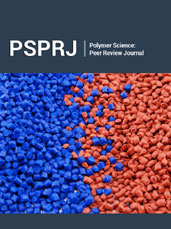- Submissions

Full Text
Polymer Science: Peer Review Journal
Sustainability, Costs and Education
Alfredo Schmitt*
President of the Susten Plást Institute, Brazil
*Corresponding author:Alfredo Schmitt, President of the Susten Plást Institute, Brazil
Submission: July 03, 2024;Published: July 10, 2024

ISSN: 2770-6613 Volume5 Issue4
Opinion
As citizens of this planet, do we have an obligation to work towards reducing waste in general, as well as minimizing wastage! At the end of this text, I will give you the magic word for this. We have seen campaigns of all kinds dedicated to showing how certain materials, especially plastics, need to be treated differently-such as through taxation or substitution with materials that are supposedly more efficient, but mandated by directives from continents that are either unaware or intentionally ignore the realities of other countries and regions. Let me give a simple example: a plastic bag weighing just 4g can carry 6kg of products. That’s to say, it supports 1,500 times its own weight. The frequently suggested substitute, a paper bag, weighs 5 times more. Think of the technology embedded in a simple plastic bag. Think of the energy involved, think in life cycle analyses conducted across continents show that the plastic bag is much more sustainable compared to paper.
At the same time, as we witness a slew of norms attempting to be enforced upon society, we already see large companies unwilling to bear these costs. Consultancies are set up to limit operational procedures, creating new costs upon new costs... but who pays the bill? Answer is, consumers, that is, us. Others argue it’s to help the planet, consumers must understand; but just look at how rapidly Chinese e-commerce companies are growing because consumers don’t want to pay higher prices-it’s easy to understand! There’s no point in trying to impose from the top down, from those seated behind desks who don’t want to see the real world and who will be responsible for the structural unemployment that will follow?
A few years ago, I wrote an obvious sentence that anyone reading this text will agree with: “Plastic artifacts have no legs, no wings, and no fins. If they are in the wrong place, it’s because of improper disposal.” It’s that simple!! The key word is education! If governments improved education, there would be no need to impose what is being tried. Education is also for researchers to improve the quality of their information. Education is the key to making sustainability sustainable.
 a Creative Commons Attribution 4.0 International License. Based on a work at www.crimsonpublishers.com.
Best viewed in
a Creative Commons Attribution 4.0 International License. Based on a work at www.crimsonpublishers.com.
Best viewed in 







.jpg)






























 Editorial Board Registrations
Editorial Board Registrations Submit your Article
Submit your Article Refer a Friend
Refer a Friend Advertise With Us
Advertise With Us
.jpg)






.jpg)














.bmp)
.jpg)
.png)
.jpg)










.jpg)






.png)

.png)



.png)






